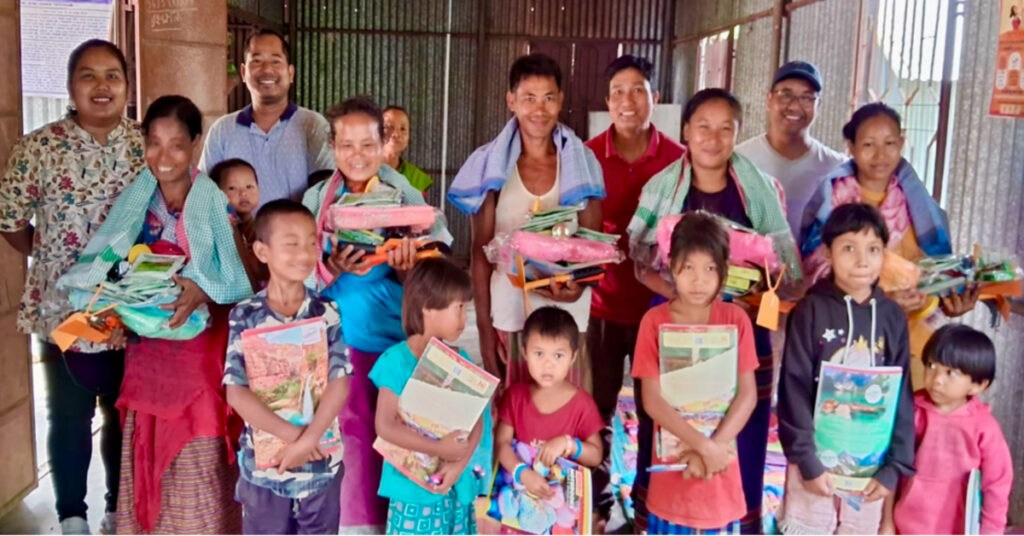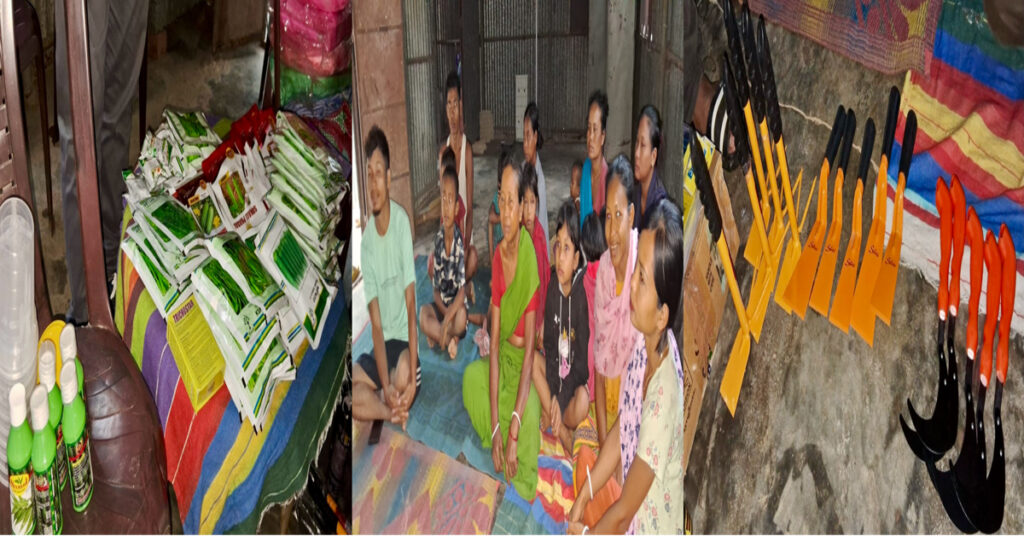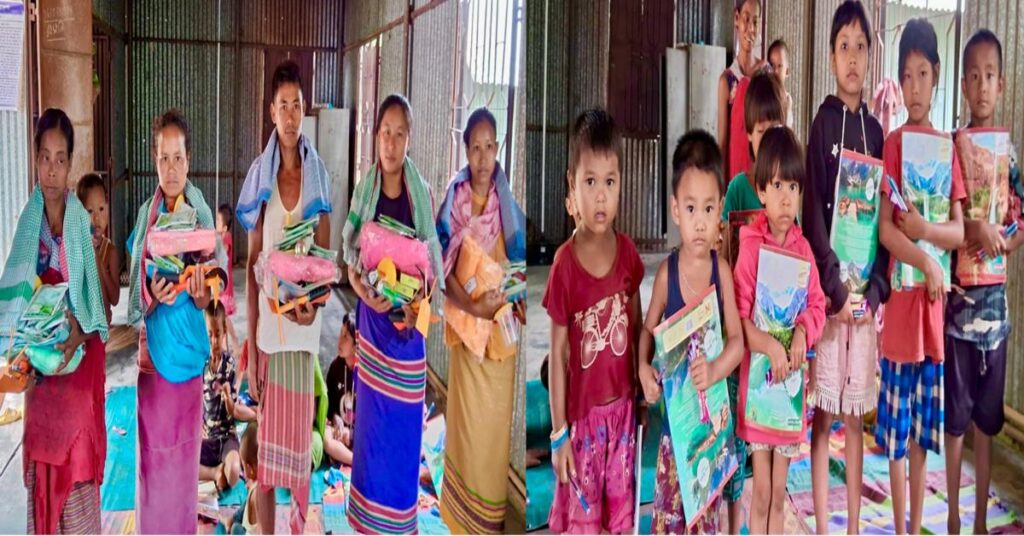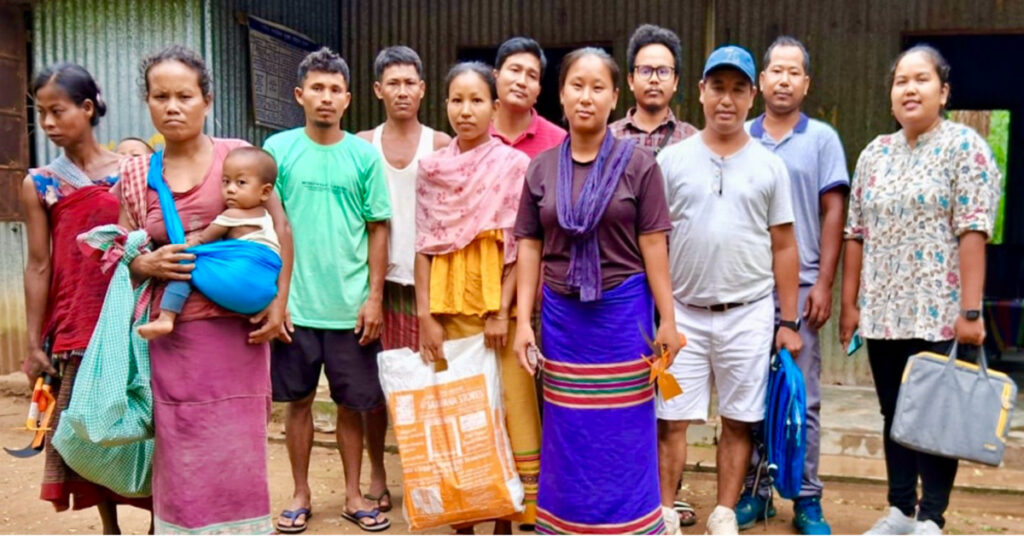
Empowering Jhum Cultivators: Distribution of Huk(Jhum) Mini Kits
Introduction
On May 18, 2024, a significant event took place in Koloi Twibaklai, Uttar Baramula, Killa Udaipur, aimed at supporting and encouraging jhum cultivators. Jhum cultivation, an integral part of the region’s heritage, faces modern challenges that require innovative solutions. The Huk(Jhum) Mini Kit Distribution project was launched to provide poor jhum cultivators with the tools and knowledge necessary to enhance their productivity and sustainability.
Distribution of Modern Instruments and Seeds
The distribution program saw the handover of various modern instruments designed to aid jhum cultivation. These tools are expected to simplify the farming process, reduce manual labor, and increase efficiency. Alongside these instruments, seven types of vegetable seeds were distributed to the cultivators. These seeds are selected for their suitability to the local climate and soil, promising better yields and a more diverse range of crops.

Crop Protection Measures
In addition to the instruments and seeds, the program included the distribution of modern equipment to protect crops from insects. These tools are essential for ensuring that the hard work of the cultivators is not undone by pests. By implementing these modern pest control measures, jhum cultivators can expect healthier crops and better harvests.
Training Session by Ms. Khumbar Debbarma
Ms. Khumbar Debbarma, the Agriculture Sector Officer of Killa, played a crucial role in the program. She conducted a comprehensive training session for the farmers, demonstrating the proper use of the newly distributed instruments. Her training covered best practices in jhum cultivation, techniques for maximizing crop yields, and methods for effective pest control. This hands-on guidance is expected to significantly improve the farming practices of the cultivators, leading to enhanced productivity and sustainability.
Support for Children
Recognizing the importance of community involvement and the presence of children at the event, the program also included the distribution of pens, notebooks, and chocolates to the young attendees. This gesture aimed to encourage the educational development of the children and ensure that they felt included in the community-centric event.

Significance of Jhum Cultivation
Jhum cultivation is more than just an agricultural practice; it is a cultural heritage passed down through generations. By supporting jhum cultivators with modern tools and knowledge, the Huk(Jhum) Mini Kit Distribution project not only aims to improve agricultural productivity but also to preserve and promote this traditional way of life. The project underscores the importance of integrating modern techniques with traditional practices to create a sustainable future for jhum cultivation.
Conclusion
The Huk(Jhum) Mini Kit Distribution event at Koloi Twibaklai, Uttar Baramula, Killa Udaipur, marks a significant step towards empowering jhum cultivators. By providing modern instruments, seeds, and pest control measures, and by offering practical training, the program aims to enhance the productivity and sustainability of jhum cultivation. The inclusion of children in the event highlights the community-centric approach of the project, fostering a sense of collective progress and support.

As jhum cultivators adopt these new tools and techniques, they are poised to achieve better yields and more sustainable farming practices. The success of this project will not only benefit the individual cultivators but also contribute to the preservation of a vital cultural heritage, ensuring that jhum cultivation remains a viable and respected practice for future generations.